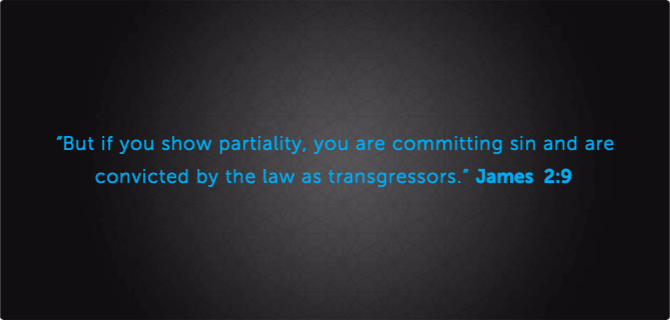
“But if you show partiality, you are committing sin and are convicted by the law as transgressors.” – James 2:9
Partiality—it’s not a very common word in today’s vocabulary. But to be partial means to show favoritism. We know that showing a bias, preference or even a prejudice is wrong – but that doesn’t seem to stop it from happening. So what can we do? How do we respond to issues of favoritism, prejudice, and even racism, in our workplaces, families and communities?
Jesus provided a great example of looking past cultural bias and discrimination in the book of John. At a time when the Jews and Samaritans harbored tremendous prejudice towards one another, Jesus initiated a conversation with a Samaritan woman. Not only did Jesus ignore racial bias, but He also disregarded gender rules and cultural norms of the time by speaking with a woman. In spite of their differences, Jesus showed her love. He shared the truth about God and addressed her sin, leaving her life forever changed. In the same way, Jesus stepped past cultural differences and societal barriers to demonstrate His love for everyone: Jew, Samaritan, you and me. (John 4: 4-30)
Where do we begin? Maybe you think racism is too big of a problem and there’s nothing you can do about it. Maybe for others, you struggle to fully understand the complexity of the issues – your life experience makes it difficult to relate to the conversation. No matter where you fall on the issue – look to Jesus. Jesus, who came to die for all of us, no matter our race, ethnicity, background or baggage. Jesus didn’t play favorites when He offered us salvation – so why do we?
Adapted from a sermon by Steven Bonham, Teaching Pastor at JFBC






